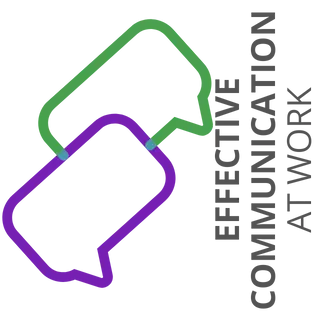Wish you had some tips for typical workplace communications and productivity predicaments but don’t have a lot of time to figure it out?
We’ve got you covered!
The ability to communicate, be productive, and solve interpersonal problems are employers’ MOST sought after skill sets.
Our Effective Communication at Work audio course was created specifically for you to get started on that skill-building journey – quickly and easily.
This Comm Skills Training is for you if you long to:
- Overcome procrastination
- Feel more focused and productive
- Understand and mitigate difficult communication with difficult people
- Negotiate effectively even under stress
- Find your own space in the workplace political landscape
Effective Communication Training Course
What you will learn in the effective communication course:
Here’s what you will learn in three 30-minutes effective communication skills
training course with downloadable workbooks:
Building Effective Communication
The effective communication course explains common dysfunctional communication patterns and how to work with them and then launches into handling workplace politics. It provides tools for communicating in uncomfortable workplace situations and for negotiating workplace politics in a way that feels right for you.
Setting Out For Success
Effective communication training tackles a theme most of us struggle with: procrastination and productivity at work. The course shows how you can work more effectively with your own procrastination by seeing your procrastination styles as messages you may have been ignoring. It provides ways to work more productively by working with your body and mind instead of against them.
Problem Solving In Teams
An effective comm skills training addresses working with team members who don’t follow procedures by considering what you, the system or the team member could be contributing to the problem and then offering ways to overcome obstacles to building accountable team members and teams.
Comm Skills Training
If your company’s communication pillars need reinforcing, our business communication skills training will strengthen them!
-
Active Listening Skills
Effective communication skills are developed through practical communication training. As a first step, learn to improve your listening and empathy skills to enhance your relationships and improve workplace cooperation.
-
Clear and Concise Messaging
Good leaders know how to communicate their messages with clarity and focus. This part of our comm skills training teaches you to simplify your messaging in your own mind and articulate it concisely to increase your listener’s receptivity to the message.
-
Conflict Resolution Techniques
Interpersonal conflicts are inevitable at work, but there are healthy and unhealthy ways to address them. Learning to see conflict as an opportunity rather than a threat increases confidence to address issues before they turn into complex problems. Putting others at ease, calming strong emotions, and helping others see each other’s point of view are critical skills in conflict situations. An emotionally charged context, while requiring calm assertiveness, needs to be nourished with respect, civility, and courtesy to reach a lasting solution.
-
Improving Interpersonal Skills
Interpersonal communication is central to leadership; this extends to interactions across all levels in the organization. In our communication training, we develop your interpersonal skills by means of a whole person, whole systems approach so you can apply your enhanced skills to any aspect of the workplace – or life!
With Our Three-hour Self-Study Comm Skills Training, You Can Get Started on the Skills You Need to:
Stay Competitive
Be Promotable
Feel Confident
Comm Skills Training - Frequently Asked Questions
What are Communication Skills?
Communication skills are verbal and non-verbal ways we send and transmit messages to each other and build collective understanding. Unless messages we send at work are clear, heard, and responded to in ways that build understanding, production and job satisfaction will suffer.
What are the Different Types of Communication?
Communication generally falls into these categories but is used simultaneously. Most of us are unaware of our communication skills and don’t know how to improve them or experience results we are not already expecting. To develop your communication abilities, you become more intentional about what type of communication or combination of communication categories to use for what types of outcomes. Here are the main categories:
- Verbal Communication: Speaking, listening, and responding to build collective understanding.
- Non-Verbal Communication: Body language, facial expression, mood, and attitude can all be communicated non-verbally. It is also culturally bound and has expressions that are appropriate or inappropriate in different cultural contexts.
- Written Communication: Writing, phrasing, and use of vocabulary and sentence structure for texts, emails, reports, memos, operational procedures, and multiple kinds of documents. To be seen as a professional, written communication needs to show a respectful tone, and be clear, polite, and inclusive while communicating messages that are easy for a variety of readers to understand.
- Visual Communication: Any visual such as an image, graph, infographic, photo, or video is part of visual communication and employers are more and more requiring their employees in various roles to have visual communication skills.
With Our Effective Communication Courses, You Will Have What You Need to Improve:
- Productivity
- Interpersonal communication with difficult people
- Team accountability
Get effective communication courses now for only $97.







